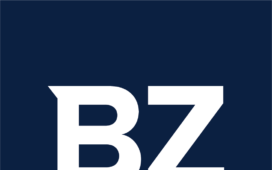Individual investors are increasingly trying their hand at foreign exchange trading, also known as forex or FX. No longer reserved for global corporations and institutional traders, forex trading can diversify your portfolio, hedge against future weakening of the dollar, and produce short- or long-term profits.
Read on to find out if forex should be part of your investment strategy in 2024. We’ll cover forex basics, including how currency trades work, what the risks are, and how you can get started.
What Is Forex?
FX is currency exchange—that is, buying one currency with another. Foreign exchange is the largest and most liquid financial market in the world.
If you’ve used an ATM machine internationally or purchased something from another country, you’ve participated in a currency exchange. The gist is that you use U.S. dollars to receive a different amount of another currency.
As you know, the mathematical translation of dollars to the other currency requires an exchange rate. Most exchange rates are floating, meaning they fluctuate up and down. Those movements are driven by the supply and demand in the global FX market. FX traders use those exchange rate shifts to realize gains or hedge against losses.
How Does Forex Work?
Forex trading is decentralized—currency trades transact across a global network of banks and brokerages. This is different from public stock trading, which happens on an exchange like the New York Stock Exchange.
Currencies, like stocks, have identifying symbols or codes. The U.S. dollar is USD and the euro is EUR. Other popular currencies include the British pound (GBP), the Canadian dollar (CAD), the New Zealand dollar (NZD), the Japanese yen (JPY) and the Swiss franc (CHF). There are many more, but trading among these seven accounts for the majority of global FX activity.
Like many areas of finance, forex trading has its own lingo. Key terms to know include spot trading, currency pairs, lots, leverage and pips.
Spot Trading
Spot trades are transactions in which the buyer immediately takes delivery of the asset. Currency spot trades use the current exchange rate (called the spot exchange rate) and typically settle in two business days. This is the most straightforward type of currency trade.
Currency traders can also make forward or futures trades. In forward contracts, the buyer and seller agree to an exchange at some future date, on negotiated terms. This is an over-the-counter instrument that’s typically non-transferable. Futures FX contracts, on the other hand, are standardized and can be publicly traded.
Currency Pairs
Currencies trade in pairs, with a pair representing the exchange rate between the two components. EUR/USD, for example, references the relationship between the euro and the U.S. dollar. The first currency in a pair—EUR in our example—is the base currency. The second currency is the quote currency.
Near the end of June, the EUR/USD exchange rate was around 1.09. This means that 1 unit of the base currency can buy 1.09 units of the quote currency. More specifically, €1 can buy $1.09.
Lots And Leverage
When you’re traveling, you can exchange money in small increments at any local bank or travel center. FX trades are not as flexible with respect to the transaction amount. Currencies trade in lots, mini lots or micro lots. These are 100,000, 10,000 and 1,000 units of currency, respectively.
You don’t need €100,000 or even €1,000 for a single trade, however. This is because forex brokers typically allow for margin trading. So you can borrow funds from the broker to fund a portion of the transaction.
In the U.S., leverage on currency transactions is capped at 50:1 for major currencies and 20:1 for less popular currencies. Said another way, you’d only need 2% or 5% of your own funding to make a trade. The exact percentage depends on the currency pair you’re buying and your broker’s margin rules.
As with buying stocks on margin, you’re still on the hook for losses, even if they exceed the cash you put into the transaction.
Pips
A pip is a unit of change for a currency pair, usually equal to 0.0001. If the EUR/USD rate moves from 1.09135 to 1.09145, for example, it has increased by 1 pip. Some currencies use a different definition for pips, however. Currency pairs involving the Japanese yen, for example, define a pip as 0.01.
The brain trust at Forbes has run the numbers, conducted the research, and done the analysis to come up with some of the best places for you to make money in 2024. Download one of Forbes’ most popular and widely anticipated reports, 12 Best Stocks To Buy for 2024.
Who Trades Forex?
Banks and other financial institutions, hedge funds, money managers and global corporations are the main participants in the FX market. Common motivations include:
- Profit-seeking: Institutional and individual traders may seek to profit from future currency movements. They use fundamental and technical analysis to guide their decisions.
- Hedging: Global corporations may use the FX market to limit variability in costs incurred or income earned in foreign countries.
- Diversification: Currency diversification can balance a portfolio’s overall risk.
- Currency manipulation: Central banks may trade to encourage appreciation or depreciation of their own currency.
What Are The Risks Of Trading Forex?
Trading forex is inherently risky. Exchange rates can change quickly and unpredictably. As with a stock purchase, you can research your trade carefully and still misjudge the future. Whether you are day trading or taking a longer-term approach, you can easily end up holding a currency asset that’s worth less than you paid for it.
High fees and commissions, along with the common use of leverage, increase the risk of FX trading significantly. Trade-related fees can immediately put you in a negative position. And buying on margin allows you to invest more than you can afford to lose, which is generally not a good idea.
The Commodity Futures Trading Commission (CFTC) also warns prospective FX traders about rampant fraud in forex. Scams can involve pitches of low-risk, high-return currency strategies or promises to trade on the interbank currency market, among other things.
Risk Mitigation In Forex
Managing the risks of FX begins with selecting a reputable forex broker. Look for an institution that’s associated with a U.S. agency such as the CFTC or FINRA. Research any prospective broker’s history and read customer reviews. Ask about account security and transaction speed—faster trade execution is better. Also assess the quality of the trading and educational tools the broker provides.
Next, make sure you define a trading strategy. That strategy should outline a maximum percentage of your available funds you’ll risk with each trade, as well as your general approach and the technical signals and requirements that define a reasonable transaction.
Finally, use stop and limit orders to stem losses and take profits on your currency positions.
How Do I Get Started Trading Forex?
To start forex trading, take these steps:
- Find a reputable, U.S.-regulated broker.
- Open your forex trading account.
- Deposit funds in your account. You can usually fund your account with an online transfer.
- Choose a trading platform. The trading platform is the interface you’ll use to buy and sell currencies. Your broker provides access to the platform but may give you more than one option. You will want a platform that includes charting and forecasting tools as well as online trading.
- Learn the ropes of forex trading and devise a strategy. Try using a demo account, where you can transact “virtual” trades. Trading without real money gives you the chance to test and refine your strategy.
- Make a small trade, then build on your experience. Keep a log of what works and what doesn’t, so you can learn from your wins and losses.
The brain trust at Forbes has run the numbers, conducted the research, and done the analysis to come up with some of the best places for you to make money in 2024. Download one of Forbes’ most popular and widely anticipated reports, 12 Best Stocks To Buy for 2024.
The brain trust at Forbes has run the numbers, conducted the research, and done the analysis to come up with some of the best places for you to make money in 2024. Download one of Forbes’ most popular and widely anticipated reports, 12 Best Stocks To Buy for 2024.



